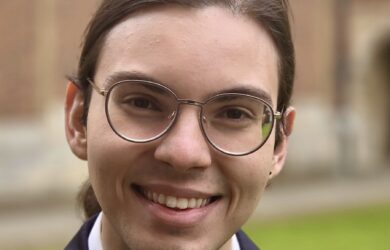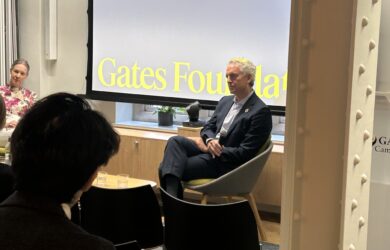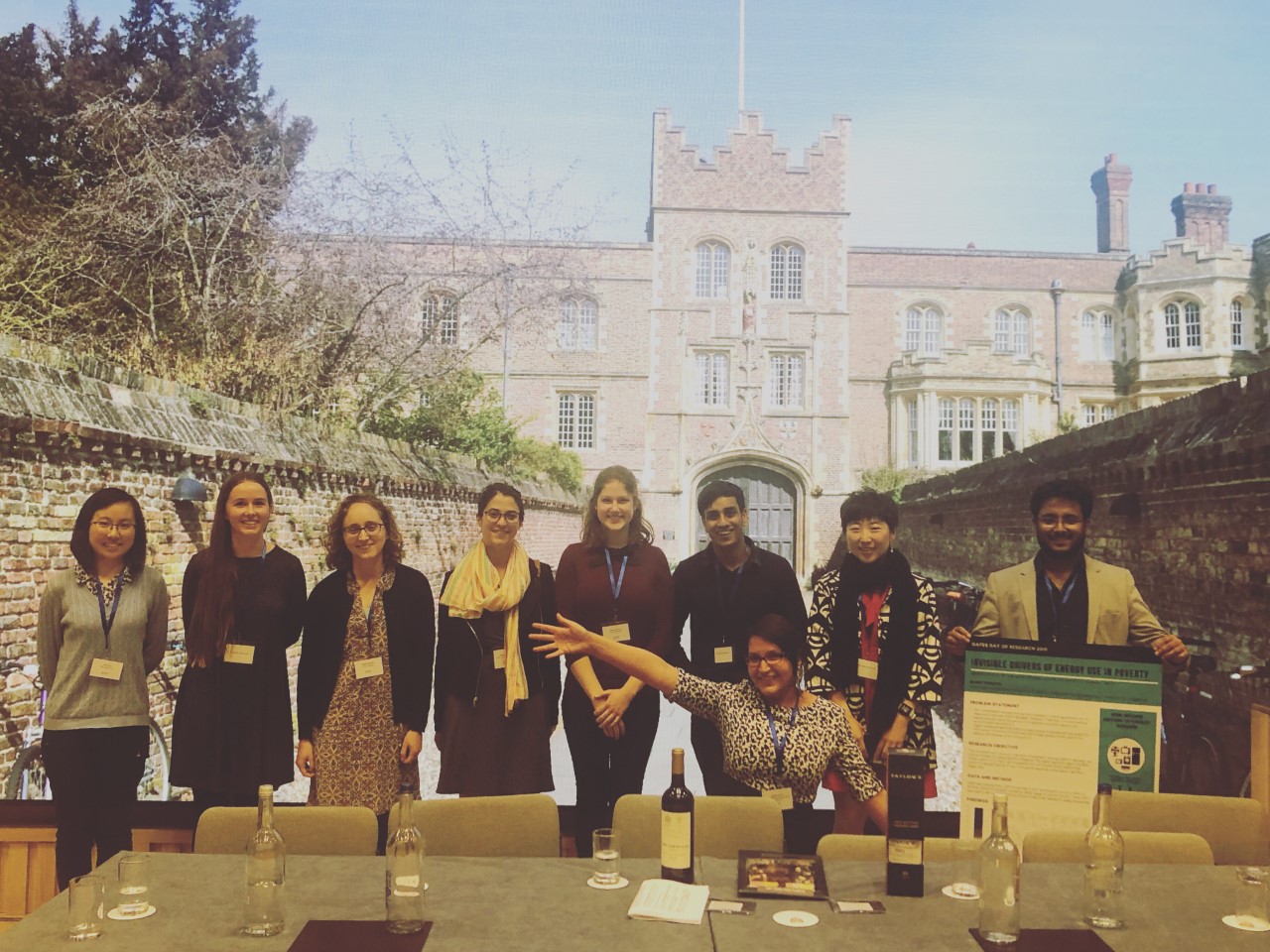
The Gates Cambridge Day of Research featured fascinating research findings & a stimulating panel discussion on personalised medicine & public health.
The Day of Research is a celebration not just a conference.
Andrea Kusec
Nearly 30 Gates Cambridge scholars took part in this year’s Day of Research, sharing their research findings on a broad range of subjects, including war songs in Donbas, the repair of central nervous system cells and bird conservation.
Andrea Kusec, internal officer of the Gates Cambridge Scholars Council, described the event as “a celebration not just a conference” and said it was central to the Gates Cambridge those of bringing together scholars in different fields and establishing a global network interested in tackling the world’s biggest issues.
Dame Fiona Reynolds, master of Emmanuel College and former Director-General of the National Trust, gave the keynote address on preserving the environment. She said that recent protests by students and Extinction Rebellion, which won widespread support, showed: “We are all environmentalists now.” However, Dame Fiona says there was a distance between our ambitions and the reality of what we are doing to counter climate change.
She traced the origins of environmentalism in the UK back to the campaign against plans to flood the Lake District in the 19th century and concerns about the impact on the beauty of the area, celebrated by William Wordsworth. She spoke too about the role of Octavia Hill, one of the founders of the National Trust, who took inner city London schoolchildren on trips to Epping Forest in the belief that access to the beauty of nature was a human right.
She added that another early driver of the environmental movement was concern about the slaughter of birds for their feathers.
Dame Fiona also spoke about early concerns about growth and sustainable living and about the work of the National Trust in defending biodiversity against commercial interests. There had been victories, but many defeats, she said. Legislation such as the Climate Change Act 2008 and the Paris Agreement were good, but they were not sufficient to stem the “sense of crisis”. “We have to do more,” said Dame Fiona. “It is not about what we are doing wrong, but what we are not doing right.”
For her an appreciation of the beauty of their surroundings can help to encourage people to make the changes necessary. “Beauty inspires people and makes them feel good. We have reduced everything to technical arguments and not let a sense of wonder at nature and the emotion in,” she said, calling for a move away from GDP as the way we measure national well being. “The economy is not all that we need,” she stated.
She said policies needed to be redesigned to be more sustainable and beauty needed to be placed firmly at the centre of them so people felt good about them. She added that children needed to be encouraged to experience nature rather than be stuck on screens so that they could develop a love of nature.
Dame Fiona concluded: “We need beauty. It is not a luxury when the rest of the world is in chaos. It is a way of looking at the world and appreciating it in its fullest sense and how much it nurtures our lives. Beauty is a means to our collective liberation and the long-term sustainability of our planet.”
From war songs to neuronal repair
Individual scholar presentations took place throughout the day and covered a wide range of different fields. There were presentations ranging from ecofeminism in Moana and eukaryotic mRNA 3 end processing to medical cartography in 19th century colonial India.
Iryna Shuvalova [2016], who is doing a PhD in Slavonic Studies, spoke of her research into popular war songs in Donbas. Iryna’s study analyses over 300 songs from all sides ofthe conflict in Ukraine and aims to give a snapshot of what is going on on the ground. The songs are both professional and amateur and there is great stylistic variety.
Iryna decided to study war songs because they are participative, constructing shared narratives, are accessible and give an immediate idea of what is going on in a situation of ongoing conflict where things are changing very rapidly. “They shape and reflect existing identities and identities in flux. Identities help us to understand groups and inter/intra-group dynamics,” said Iryna, adding that she is particularly interested in looking for patterns in the process of ‘selfing’ and ‘othering’ and in how words can acquire new meaning within a ‘trauma lexicon, for instance, words used as insults can become badges of pride.
Caitlin Andrews [2016], who is doing a PhD in Zoology, spoke of her research into efforts to conserve the hihi, a bird in New Zealand which is under threat of extinction. Sharing results from her fieldwork, she showed that some hihi are more generalist in their diet and others are more specialist. She wanted to test how diet changed when birds were moved to new environments to start new populations and whether diet could be used to predict which birds were more likely to survive after relocation. She found that some birds who had specialist diets shifted toward more generalist diets once they were moved to a new site, possibly because they faced less competition for food. She said it was important to understand birds’ individual needs to ensure their survival and to predict how those needs might change in different contexts.
Veselina Petrova [2015], who is doing a PhD in Clinical Neurosciences, spoke about her research into how the protein protrudin may aid neuronal repair in the central nervous system. She pointed out that 80% of spinal cord injuries occurred in young men and that there were currently no effective treatments. Glaucoma is another condition which affects the central nervous system and is the second biggest cause of blindness worldwide.
Veselina's research uses retinal cells to investigate why central nervous system cells do not self repair. Her hypothesis is that once cells develop fully, the transport of proteins involved in forming new connections and establishing maturity becomes a priority over that of growth-associated molecules. The lack of these proteins in aged cells could contribute to their reduced ability to repair after injury.
Her research looks at how to re-establish the transport of growth molecules to injured processes through injecting active protrudin. The results are remarkable, showing regeneration of retinal pathways in rats. Next year she plans to do further research, using human embryonic stem cells. Veselina said: “By using protrudin we can identify new pathways and discover new molecules that can be targeted by drugs to improve outcomes.”
Public health and personalised medicine
The Day of Research also included a panel discussion with scholars from the fields of Psychiatry, Pathology, Veterinary Medicine and Chemistry, chaired by Ayan Mandal [2018], who is doing a PhD in Psychiatry. It focused on how to bring together developments in personalised medicine, which is very much based on individuals, with public health concerns, which focus on more equitable healthcare outcomes across the globe.
Minaam Abbas [2017], who is doing a PhD in Pathology, said developments in personalised medicine were very exciting and were driving better, more effective ways of diagnosing and treating patients. Emma Glennon [2016], who is doing a PhD in Veterinary Science, raised concerns, however, about whether countries which lacked basic health infrastructure could afford personalised medicine and about whether it might heighten health inequalities, resulting in worse care for marginalised groups. Emma Soneson [2018], who is doing a PhD in Psychiatry, said there were big questions about who was developing the research agenda for personalised medicine, who the recipients would be and how personalised medicine could be rolled out in a way which was socially just. She added that there were also strong ethical concerns about the potential implications ofincidental findings about health risks when genomic testing was done on individuals.
However, Minaam Abbas said that research could highlight that some medicines were more effective on certain sub-populations than others and could lead to drug re-purposing, such as had happened with thalidomide which was proving effective for Crohn’s Disease. June Park [2018], who is doing a PhD in Chemistry, added that most clinical trials for treatments currently used were done on white populations which meant there was already a safety and equity issue when prescribing these to groups who they had not been tested on.
Emma Glennon said that it was perhaps more important to focus on adopting a more personalised approach to research – such as including more diverse populations in testing – before considering personalisation of treatment.
The Day of Research also included a series of microtalks by scholars on subjects ranging from the impact of lullaby singing on immigrant mothers’ stress levels to whether theatre can change minds.
There were also poster sessions from a range of different disciplines covering everything from zoonoses in displacement to the evolution of transmissible cancers in Tasmanian devils. Scholars voted on the best posters and presentations. Winner of the competition for best poster was Ramit Debnath [2018], who is doing a PhD in Architecture, for his poster on how slum rehabilitation influences appliance ownership. Alice Fan [2017], who is doing a PhD in Medicine, won Best Microtalk for her presentation on tuberculosis with zebrafish modelling and Lauren Killingsworth [2018], who is doing an MPhil in History, Philosophy, and Sociology of Science, Technology and Medicine, won most creative presentation for her presentation on medical cartography in 19th century colonial India.
*Picture credit: Gates Cambridge Scholars Council. Featured are the winners of best presentation/most creative presentation /best microtalk and best panel. From the left: Alice Fan, Lauren Killingsworth, Caitlin Andrews, Emma Glennon, Emma Soneson, Ayan Mandel, June Park and Minaam Abbas, with Andrea Kusec in front.
.
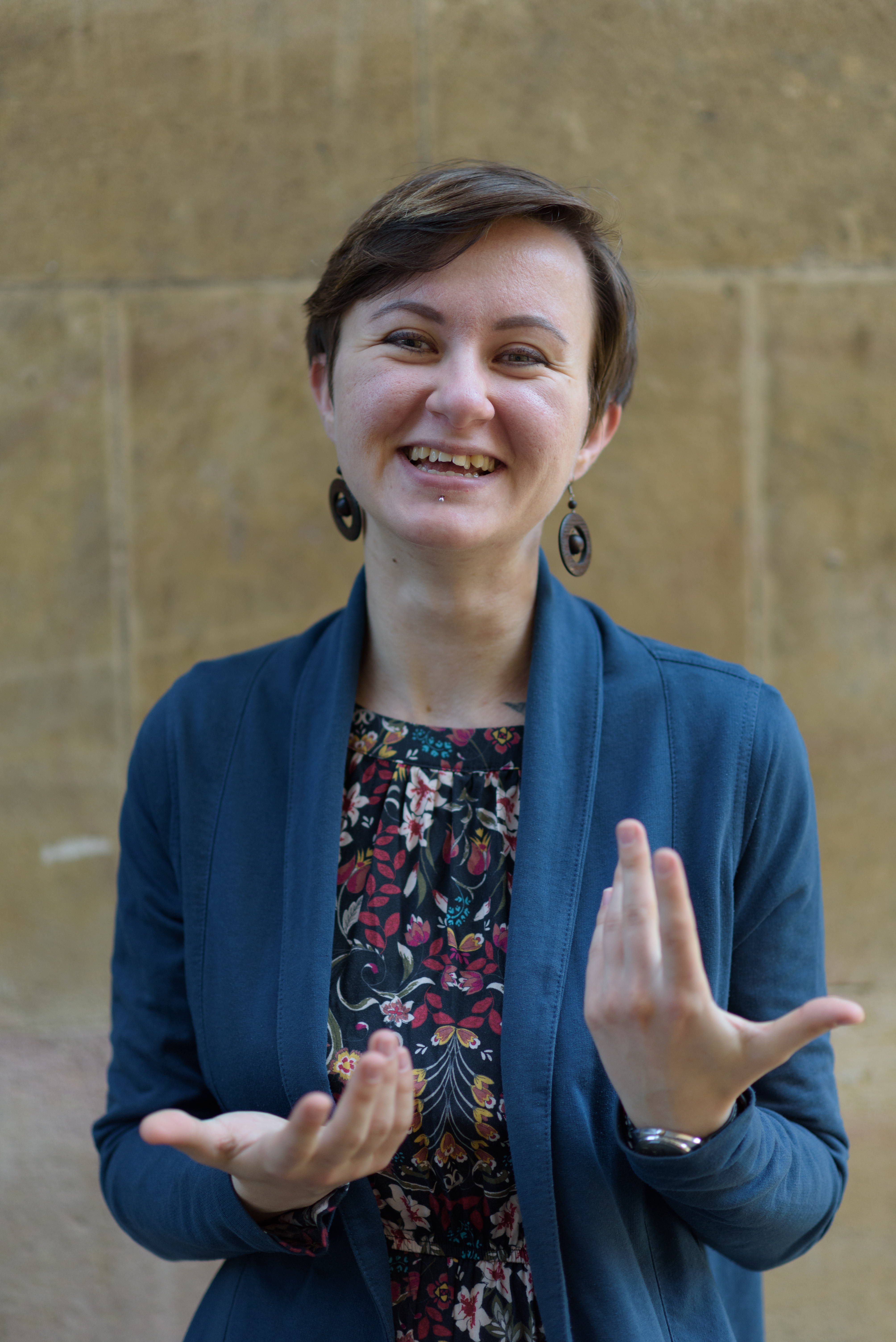
Iryna Shuvalova
- Alumni
- Ukraine
- 2016 PhD Slavonic Studies
- St John's College
Born in 1986 in Kyiv, Ukraine, Iryna Shuvalova has authored five award-winning books of poetry, including Pray to the Empty Wells (Lost Horse Press, 2019). Her most recent and fifth book of poetry Stoneorchardwoods (2020) has been named book of the year by Ukraine’s LitAktsent Prize for Literature and received the Special Prize of the Lviv UNESCO City of Literature Book Award. In 2009, she co-edited 120 Pages of ‘Sodom,’ the first anthology of queer writing in Ukraine. Her poetry has been translated into 25 languages and published internationally, including in Modern Poetry in Translation, The White Review, Literary Hub, Die Zeit, and others. She is a member of PEN Ukraine.
Shuvalova's work as a translator includes translations into Ukrainian of novels by Yann Martel and Virginia Woolf, as well as poems by Ted Hughes, Louise Glück, and Alice Oswald. She has also translated into English the writing of modern and contemporary Ukrainian poets, including Lesia Ukrainka, Mykola Bazhan, Iurii Klen, Mykola Zerov, Ostap Slyvynskyi, and others. Her translations appeared in Words Without Borders, Modern Poetry in Translation, and Ambit, as well as multiple anthologies.
Shuvalova's research interests lie at the intersection of culture and politics in Eastern Europe. Her forthcoming academic monograph 'Donbas Is My Sparta': Identity and Belonging in the Songs of the Russo-Ukrainian War explores the impact of the war on Ukrainian society. She holds a PhD in Slavonic Studies from the University of Cambridge and an MA in Comparative Literature from Dartmouth College, where she was a Fulbright scholar. In the summer of 2023, she will be joining the University of Oslo as a postdoctoral research fellow.
Previous Education
Taras Shevchenko National University of Kyiv
Dartmouth College
Links
https://irynashuvalova.com
https://cambridge.academia.edu/IrynaShuvalova
https://ua.linkedin.com/in/shuvalova
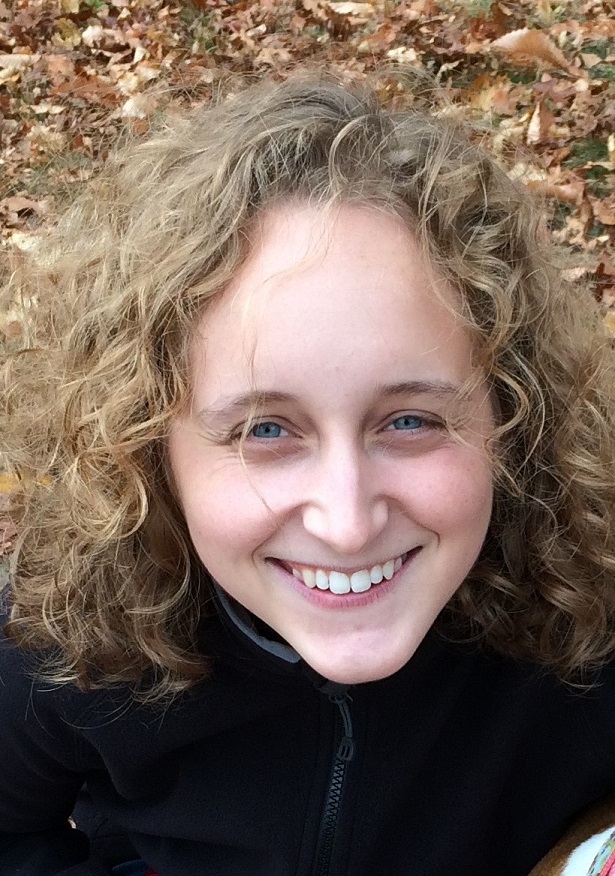
Caitlin Andrews
- Alumni
- United States
- 2016 PhD Zoology
- King's College
I have always been passionate about understanding how animals think, feel, and interact with the world around them. A native of Massachusetts, I graduated from Harvard University, where I explored these ideas in many contexts--studying parrot cognition in Dr. Irene Pepperberg’s lab at Harvard; primate-human interactions in Rwanda; dogs’ perceptions of morality at Yale University’s Canine Cognition Center; and gorilla behavior at Boston’s Franklin Park Zoo. Most recently, I conducted my undergraduate thesis research in Mexico, studying sex differences in the ranging behavior of Yucatan spider monkeys in the Calakmul Biosphere Reserve. These experiences have confirmed my belief that animals exhibit unique, individual behavioral tendencies, or “personalities,” bringing into question why different personality traits might be favored in the wild. At Cambridge, I will pursue a PhD in Zoology under Dr. Rose Thorogood. My research will examine how personality and social network position influence fitness and other outcomes in hihi (endangered New Zealand birds), and how this information can be used to develop better conservation strategies. Beyond my research, I hope to continue pursuing my other interests in conservation education, creative writing, world music, and percussion. I am so grateful to be joining the Gates Cambridge community and look forward to meeting my fellow scholars!
Previous Education
Harvard University
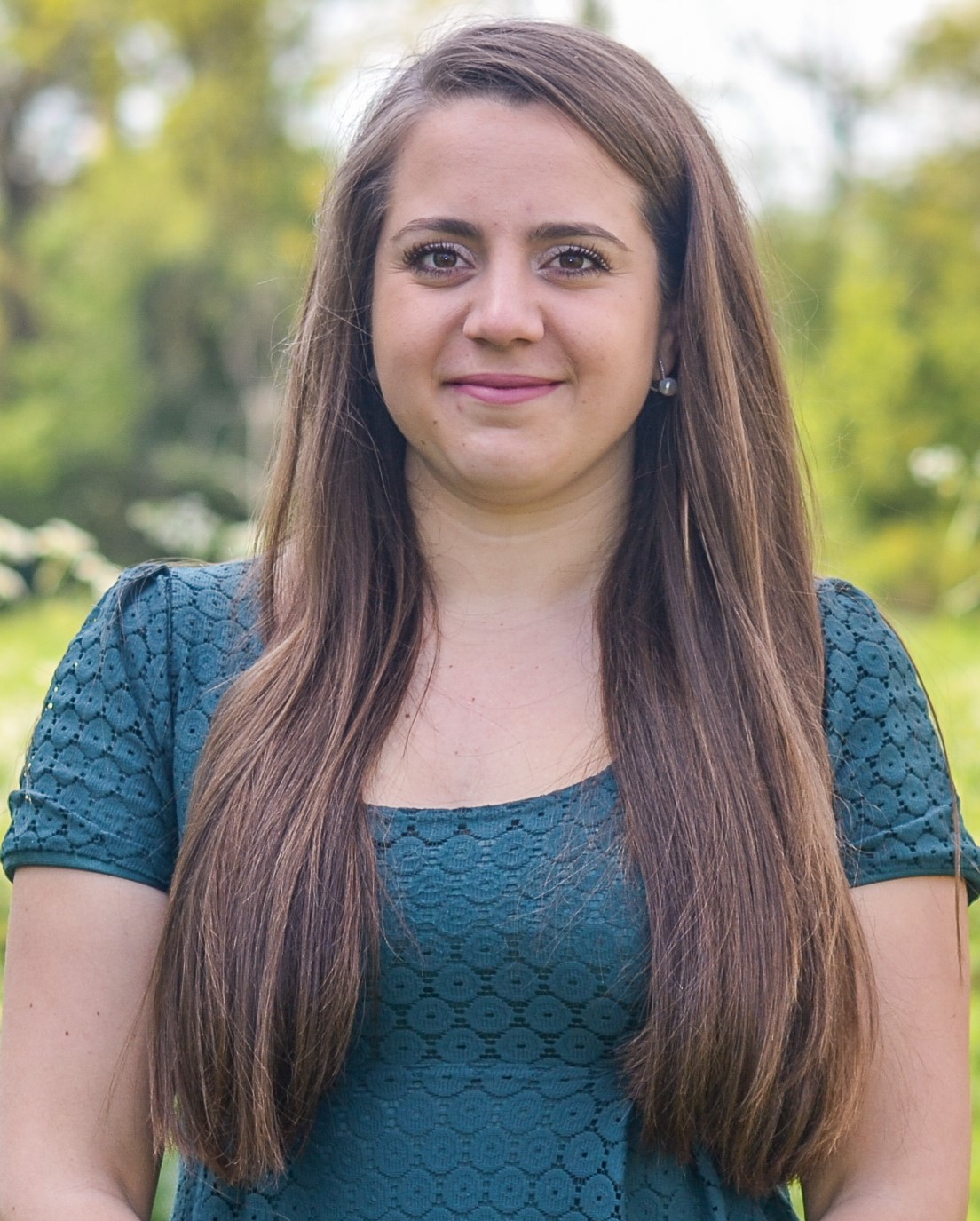
Veselina Petrova
- Alumni
- Bulgaria
- 2015 PhD Clinical Neurosciences
- Hughes Hall
Originally from Bulgaria, I moved to the UK six years ago when I was awarded the HMC scholarship to study at a British boarding school – Dollar Academy. I first became interested in the clinical neurosciences last summer during my research experience at the Swiss Federal Institute of Technology where I worked on a mouse model of amyotrophic lateral sclerosis and on advancing some of the current tools available for gene therapy. My interests were further developed through my dissertation project which I am about to finish as part of my undergraduate degree at Edinburgh University, in which I characterised some of the major pathological changes in a novel mouse model of Alzheimer’s disease. Today I look forward to starting my PhD degree in Prof. James Fawcett’s laboratory in Cambridge where I will be exploring what goes wrong inside nerve cells upon spinal cord injury and will hopefully be able to design new strategies to repair the damage. My ultimate aim is to enhance the understanding of the neurodegenerative and regenerative processes in the brain and to provide improvements to the diagnosis, treatment and quality of life of the affected individuals and their families. I am also passionate about scientific communication and I have been involved in writing for the Science and Environment section of the Student newspaper over the past few years. I hope that as a Gates scholar, I will be able to reach out to communities and bridge the gap between scientists and the public.
Previous Education
The University of Edinburgh
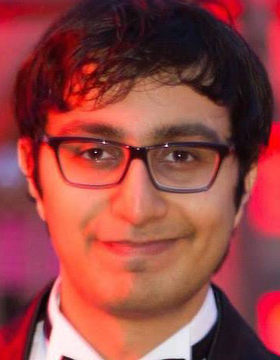
Minaam Abbas
- Alumni
- Pakistan
- 2017 PhD Pathology
- St John's College
The diverse and innovative realms of biomedical sciences and healthcare captured my imagination since my days at Karachi Grammar School. As I commenced my medical training at Cambridge, I was astounded by the complex collection of molecular machines and networks that formed an unlikely, harmonious cooperative: the human body. I periodically satiated my curiosity with research projects exploring proteins involved in cancer metastasis and novel prognostic tests for chronic liver disease. At Caltech, I also investigated human neural reference frames in Brain Machine Interfaces. This inspired a Part II in Neuroscience, which gradually revealed the dearth of approved medications for neural tumours. This burning necessity drove me to cofound a cancer therapeutics and drug delivery bio-startup, angioClast, which is developing a sophisticated treatment strategy for vascularised tumours. As an MB/PhD student, I hope to study the cryptic world of RNA and DNA modifications at the Kouzarides Lab. This hitherto unexplored field has groundbreaking implications for future therapeutics. During this program, I also hope to further delve into the fascinating fields of public health and health-tech. These interests were shaped by my forays into public policy for Neglected Tropical Diseases, and a micro-financing social venture featured at the Hult Prize Regional Final. In the future, I wish to discover synergies across the journey from bench to bedside, delivering innovative personalised medicine and effective public health interventions.
Previous Education
University of Cambridge
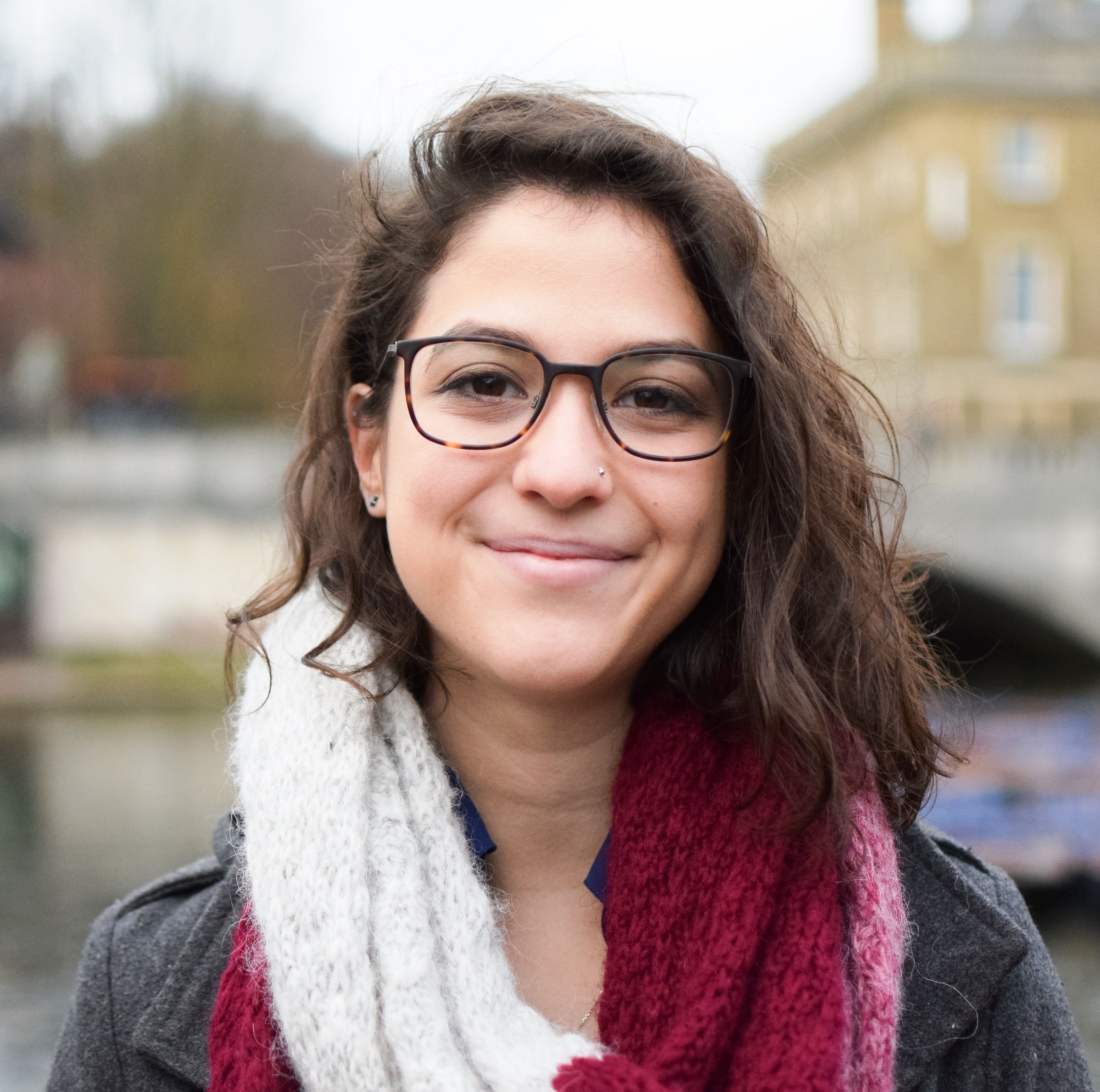
Emma Glennon
- Alumni
- United States
- 2016 PhD Veterinary Medicine
- Churchill College

Emma Soneson
- Alumni
- United States
- 2018 PhD Psychiatry
- Clare College
Emma graduated with a PhD in Psychiatry in 2023. Her doctoral research focused on how public health approaches can improve the identification of and response to mental health difficulties in children and young people. Throughout her time at Cambridge, Emma's research, leadership, and impact were recognised with several awards, including the Bill Gates Sr. Prize, the Clinical School's Milo Keynes Prize for Outstanding Dissertation, the Vice Chancellor's Awards for Research Impact and Engagement, and the NIHR Mental Health Research Incubator's Prize for 'Collaborative Involvement of Patients and the Public'.
Emma is currently a Senior Postdoctoral Researcher in the Department of Psychiatry at the University of Oxford as well as a Fulford Junior Research Fellow at Somerville College. Her varied research programme covers many aspects of child and adolescent mental health, including psychiatric epidemiology, intervention development and evaluation, implementation, and methodological research. The ultimate goal of her work is to reduce the incidence, prevalence, and impact of child and adolescent mental health difficulties, with a particular focus on better supporting children and adolescents from marginalised and minoritised groups.
Previous Education
Yale University
University of Cambridge
Links
https://www.psych.ox.ac.uk/team/emma-soneson
https://twitter.com/emma_soneson

June Park
- Alumni
- United States
- 2018 PhD Chemistry
- King's College
I am an engineer fascinated by stem cell biology, aiming to address the challenges in healthcare through innovation and entrepreneurship. Studying Chemical and Biological Engineering at MIT, with a minor in Biology and Music, I found my passion for translational research while working in interdisciplinary labs. At Langer Lab, I helped develop an ultrasound-mediated colonic drug delivery device that became the platform technology for Suono Bio, a Boston-based biotech start-up. With keen interests in education and entrepreneurship, I cofounded Kepler Tech Lab in Rwanda, with the mission to develop and test an affordable, hands-on, and locally-relevant engineering teaching laboratory model with an associated teacher training programme. Since graduation, I have been working as a healthcare consultant to help generate and deliver strategic recommendations for top 20 global biopharmaceutical companies. My excitement for biology and engineering brings me back to research, and at Cambridge I plan to develop a biomimetic, 3D printable scaffold for development of lung stem cell-derived artificial trachea and organoids. The successful development of artificial trachea using the synthetic scaffold and patient stem cells may transform the treatment of tracheal injuries and diseases, significantly improving the survival and post treatment quality of life for millions of patients.
Previous Education
Massachusetts Institute of Technology (MIT)

Ramit Debnath
- Alumni
- India
- 2018 PhD Architecture
- Churchill College
With a background in electrical engineering and computational social sciences, I design collective intelligence approaches to provide a data-driven, complex system-level understanding of barriers to climate action in the Anthropocene, their interactions, and how these translate to leverage points for policy and behavioural interventions at scale. Previously, I held positions at Caltech, Cambridge Computer Laboratory, International Energy Agency, Stanford University and IIT Bombay. I received MPhil and PhD from the University of Cambridge as a Gates Scholar.
Links
https://camcid.github.io
https://www.collectivedesign.group.cam.ac.uk/team.html
https://www.linkedin.com/in/ramit-debnath-b1980a204
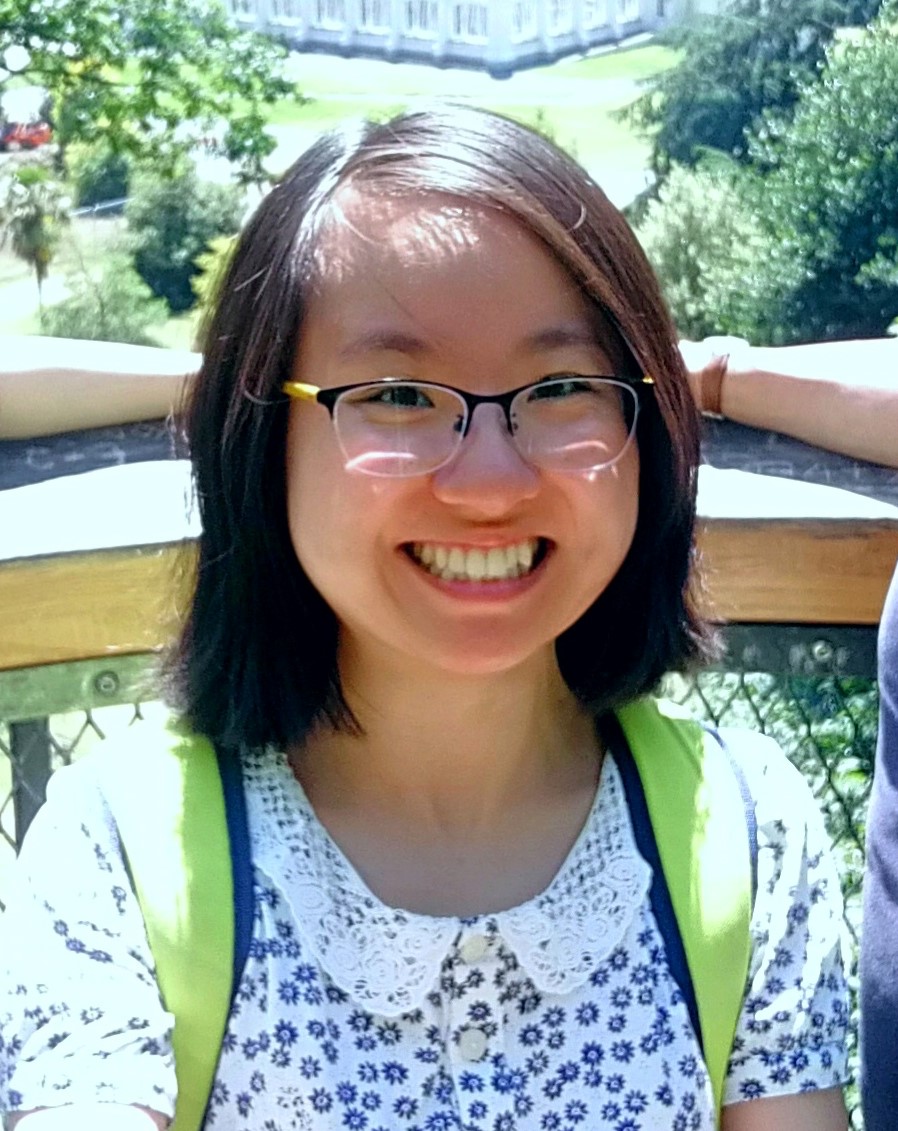
Jingwen (Alice) Fan
- Alumni
- China
- 2017 PhD Medicine
- Emmanuel College
Growing up in a developing country, I was deeply impressed by how science and technology have improved the quality of people’s life. On the other hand, as I was volunteering in science education in remote villages, I also realized education and medical care are distributed unequally in some undeveloped regions. With my ultimate goal of making everyone around the world have equal right to basic medical care, I was determined to become a medical scientist and to develop useful and affordable therapies to improve people’s lives. I am excited and honoured to be joining the Gates Cambridge community for my PhD after my undergraduate study in Xiamen University, China. During my PhD in Professor Lalita Ramakrishnan’s lab, I will work on improving and possibly discovering new therapies for tuberculosis infection. As one of the oldest known human infectious diseases, tuberculosis continues being a leading cause of death from infectious diseases. It caused about 1.3 million deaths and 10.4 million infection cases in 2016 (WHO 2017). Nowadays, the rapid increase of multidrug-resistant tuberculosis strains is the main challenge in the battle against this disease. I will mainly focus on host innate immune reactions against bacterial infection. By targeting on the key molecules and pathways in host immune system, I hope to provide new ideas in the treatment of tuberculosis, including multidrug-resistant tuberculosis.
Previous Education
Xiamen University
Links
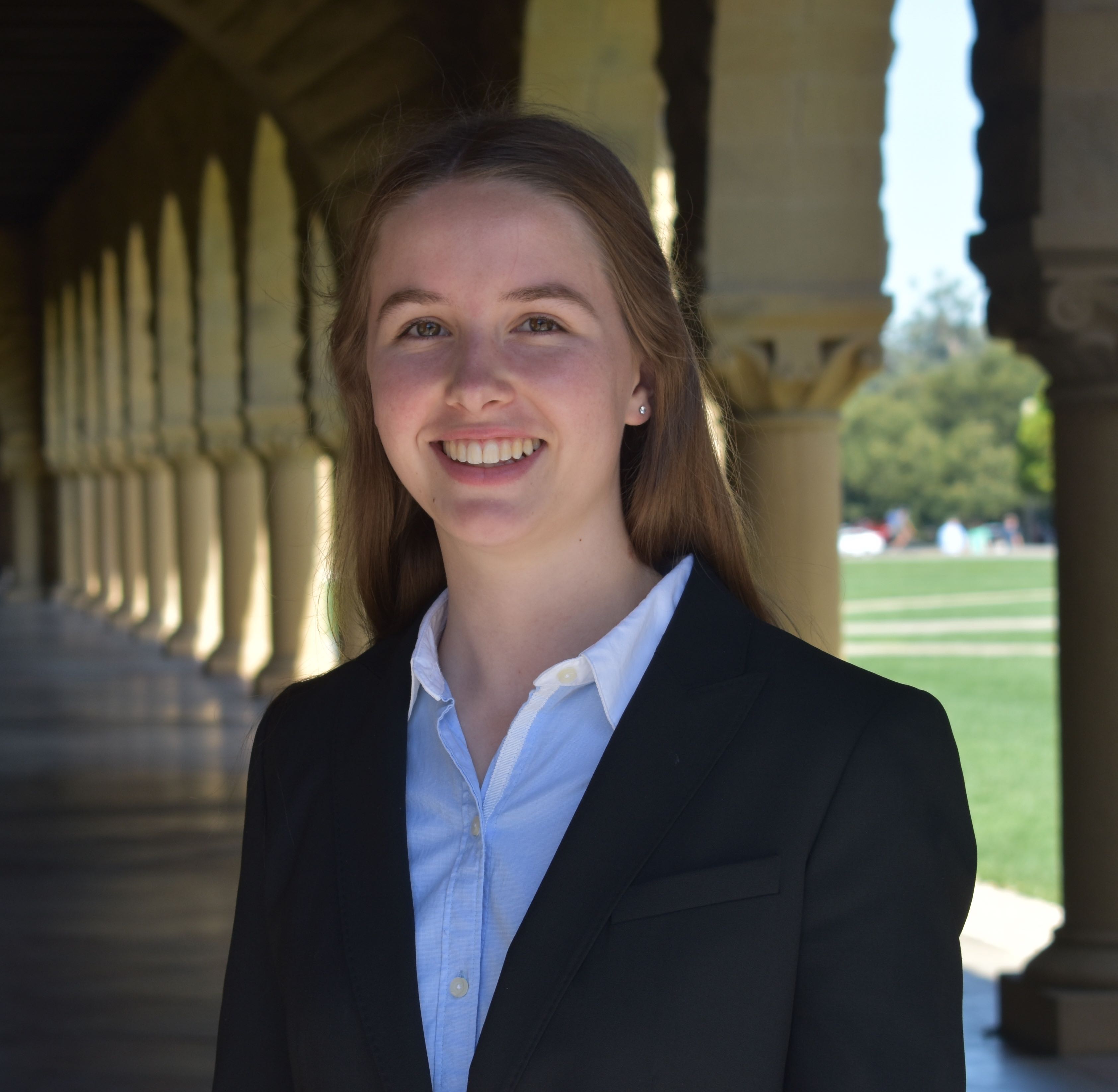
Lauren Killingsworth
- Alumni
- United States
- 2018 MPhil History, Philosophy, and Sociology of Science, Technology, and Medicine
- King's College
My research focuses on maps of cholera outbreaks made by physicians in nineteenth-century Britain. I aim to understand the role of medical cartography in shaping public perceptions of disease and contributing to public health reform. My work is driven by my experiences in public health and biomedical research. As an undergraduate at Stanford, I conducted research on neurodegenerative diseases, studied the connections between human and environmental health in the Galápagos Islands and Tanzania, and volunteered at local community health centers. My experiences raised questions that were as much social as scientific: What factors explain unequal distribution of disease? How is research communicated to the public? These questions drew me to the history of science and medicine. History reminds us that the way we present scientific information can significantly impact public perceptions of health and disease. We must work to illuminate health disparities in a way that focuses on addressing social determinants of health, rather than generating stigmas. Studying how public health messages have been delivered and acted upon in the past can help us to improve future initiatives. At Cambridge I will pursue an MPhil in History and Philosophy of Science and Medicine. As an aspiring historian and physician, I hope to pursue work that will enable the medical community to approach health disparities with greater historical context, ultimately providing more holistic, ethical, and effective solutions. I am incredibly grateful for the opportunity to join a community of scholars committed to improving the lives of others.
Previous Education
Stanford University








